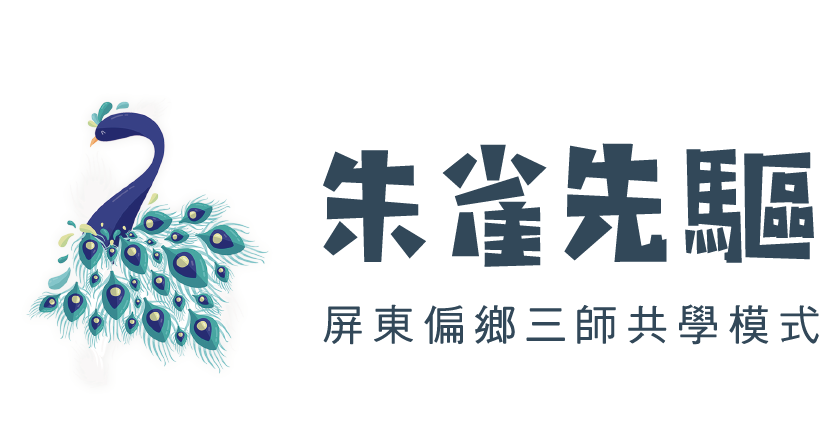【ACTIVITIES】2023 Bilingual Summer Camp
Pingtung University's Zhuque Pioneer Team has been supporting rural education for many years. This time the team held the "2023 Bilingual Summer Camp: Good Winter" from August 21st to 22nd. It was co-led by teacher Pan Yijing from the Department of Applied English and teacher Zhong Wenling from the Department of Chinese Language and Literature. The team led teachers and students Wen Bingxun, Hong Kunwei, Huang Ruojia, Chen Yihan, Ou Yuolin and other students to Jiadong Elementary School to run a summer camp. They cleverly integrated local culture and STEAM into Chinese language and English literacy activities to seize the opportunity of summer vacation. Tail, holds the heart-warming exercises for Chinese children at the beginning of the school year. At the opening ceremony, Dean Li Yating of the School of Education presented a certificate of thanks to Jiadong Elementary School, saying that Jiadong Elementary School is a partner school of the Suzaku Project and hopes that through this event, students can improve their bilingualism in Chinese and English. Teachers and students on both sides can also benefit from each other to improve teaching knowledge and learning effectiveness.
The first day of the course focuses on Chinese language and its extended activities, including word association, sign language songs, couplets and folk culture, lyrics rewriting and other activities. The team kicked off with an ice-breaking game to bring them closer together. The "Guess My Heart" game uses phonetic symbols to associate related words, hoping that the game will stimulate children's rich imagination about words; sign language teaching breaks the boundaries of language. Being able to use the barriers of speaking can deepen school children's understanding of the groups and application scope of sign language, empathize with the daily lives of people with disabilities, and increase the imagination space for words through body rhythm; the activity of understanding couplets combines Chinese language majors and local Literature and history, telling the origin of the couplets and the story of the door god, and starting from the local culture, leading the students to understand the meaning of the couplets at the Yang Clan Ancestral Site, a local monument in Jiadong, extending to the introduction of couplets in Pingtung temples and folk beliefs; in the afternoon, the lyrics rewriting course was assisted by a small team Explain the charm and meaning of lyrics, give meaning to songs through DIY activities of rewriting lyrics, stimulate children's writing potential, and have the courage to sing the creative content to their heart's content. The first day ended with a game of "Guess the Idiom". Group competitions were used to demonstrate the meaning of idioms through hand-drawing, stimulating the imagination, creativity and teamwork of the students. Teachers and students also explained the meaning of these idioms. meaning, to achieve the effect of entertaining and educating. The second-day course is English-based, using STEAM teaching materials combined with natural science and technology, culture and art, and mathematics to design lively and interesting interactive teaching and DIY activities, such as introducing the various forms and mysteries of water in English, using stones, treasures, etc. Make a simple water filter from a bottle to enhance your motivation for learning English through hands-on work and scientific application.
In addition, the two-day course combines Hakka culture and local beliefs in Pingtung. For example, students are allowed to DIY indigo dyeing products and learn about the Donggang King Welcome Festival and the ancient houses and temples of Jiadong Township. The team starts from the local culture and tradition and fully Apply the spirit of "bilingualism" - the knowledge of Chinese and English, including English listening, speaking, reading and writing skills, as well as Chinese idioms, couplets, folk beliefs, Hakka culture, and STEAM teaching that combines natural science and technology, culture and art , in line with the spirit of "the more local, the more international". During the event, teacher Pan Yijing presented STEAM teaching materials on behalf of the project. The team also prepared small gifts such as tie-dyed handmade gifts and stationery with the Suzaku logo, allowing the schoolchildren to leave beautiful summer memories. Teachers and students gained a lot from this camp. Full of teaching experience and skills!
The first day of the course focuses on Chinese language and its extended activities, including word association, sign language songs, couplets and folk culture, lyrics rewriting and other activities. The team kicked off with an ice-breaking game to bring them closer together. The "Guess My Heart" game uses phonetic symbols to associate related words, hoping that the game will stimulate children's rich imagination about words; sign language teaching breaks the boundaries of language. Being able to use the barriers of speaking can deepen school children's understanding of the groups and application scope of sign language, empathize with the daily lives of people with disabilities, and increase the imagination space for words through body rhythm; the activity of understanding couplets combines Chinese language majors and local Literature and history, telling the origin of the couplets and the story of the door god, and starting from the local culture, leading the students to understand the meaning of the couplets at the Yang Clan Ancestral Site, a local monument in Jiadong, extending to the introduction of couplets in Pingtung temples and folk beliefs; in the afternoon, the lyrics rewriting course was assisted by a small team Explain the charm and meaning of lyrics, give meaning to songs through DIY activities of rewriting lyrics, stimulate children's writing potential, and have the courage to sing the creative content to their heart's content. The first day ended with a game of "Guess the Idiom". Group competitions were used to demonstrate the meaning of idioms through hand-drawing, stimulating the imagination, creativity and teamwork of the students. Teachers and students also explained the meaning of these idioms. meaning, to achieve the effect of entertaining and educating. The second-day course is English-based, using STEAM teaching materials combined with natural science and technology, culture and art, and mathematics to design lively and interesting interactive teaching and DIY activities, such as introducing the various forms and mysteries of water in English, using stones, treasures, etc. Make a simple water filter from a bottle to enhance your motivation for learning English through hands-on work and scientific application.
In addition, the two-day course combines Hakka culture and local beliefs in Pingtung. For example, students are allowed to DIY indigo dyeing products and learn about the Donggang King Welcome Festival and the ancient houses and temples of Jiadong Township. The team starts from the local culture and tradition and fully Apply the spirit of "bilingualism" - the knowledge of Chinese and English, including English listening, speaking, reading and writing skills, as well as Chinese idioms, couplets, folk beliefs, Hakka culture, and STEAM teaching that combines natural science and technology, culture and art , in line with the spirit of "the more local, the more international". During the event, teacher Pan Yijing presented STEAM teaching materials on behalf of the project. The team also prepared small gifts such as tie-dyed handmade gifts and stationery with the Suzaku logo, allowing the schoolchildren to leave beautiful summer memories. Teachers and students gained a lot from this camp. Full of teaching experience and skills!
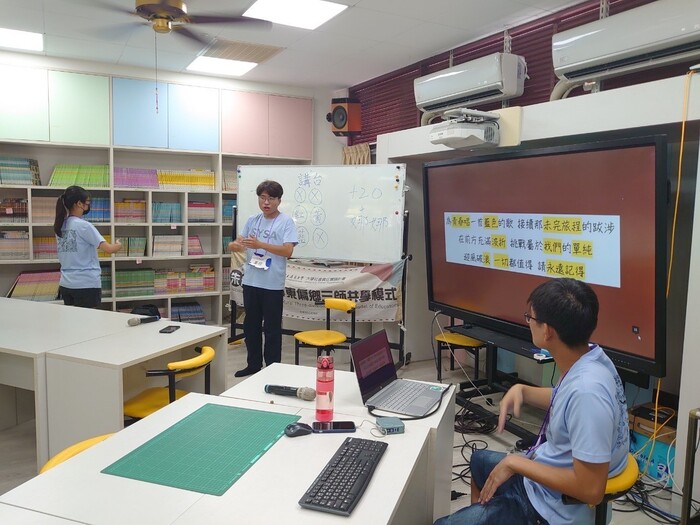
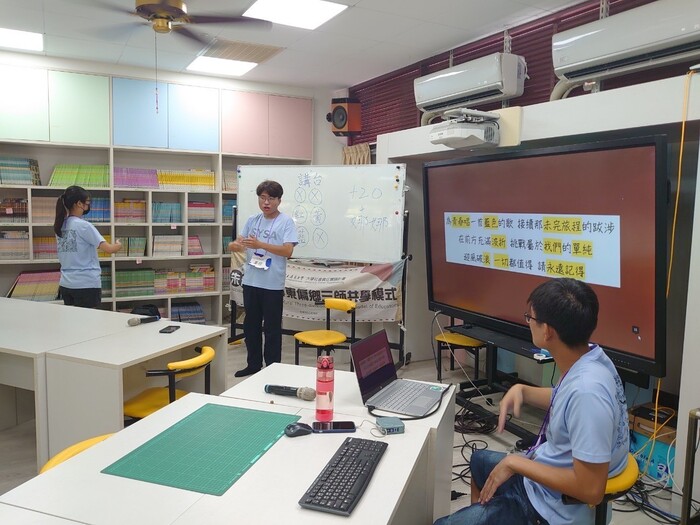
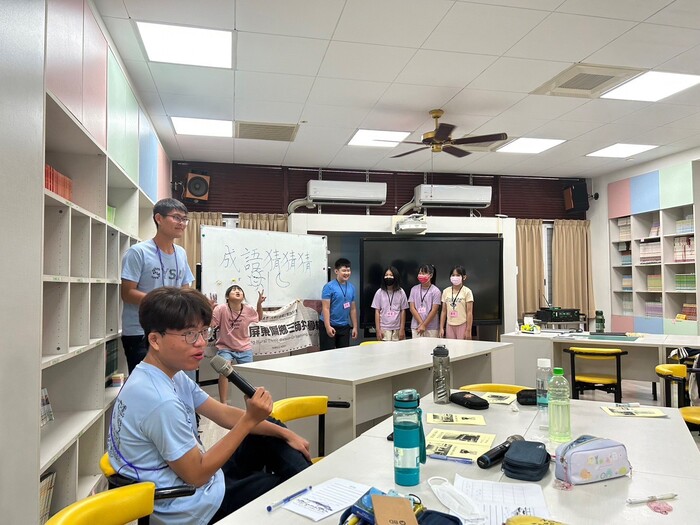
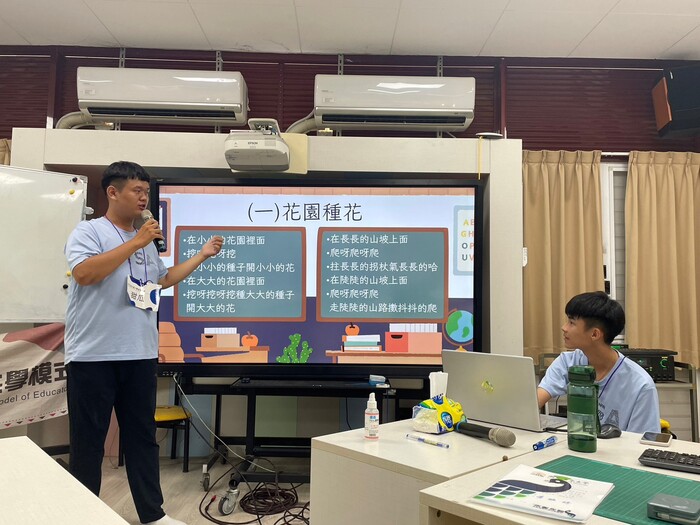
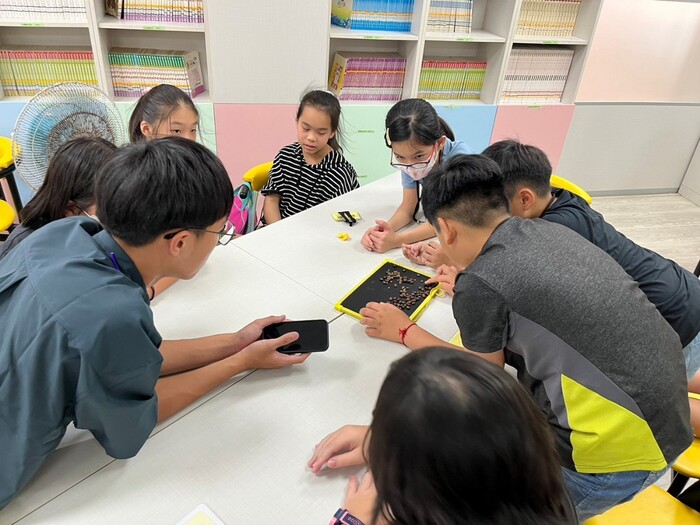
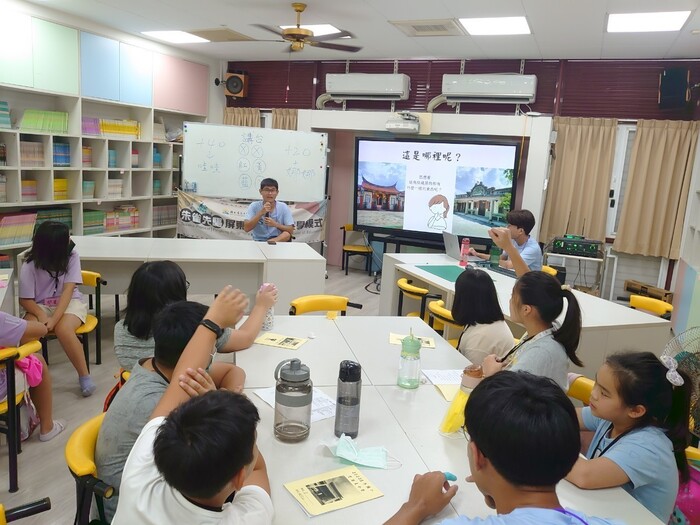
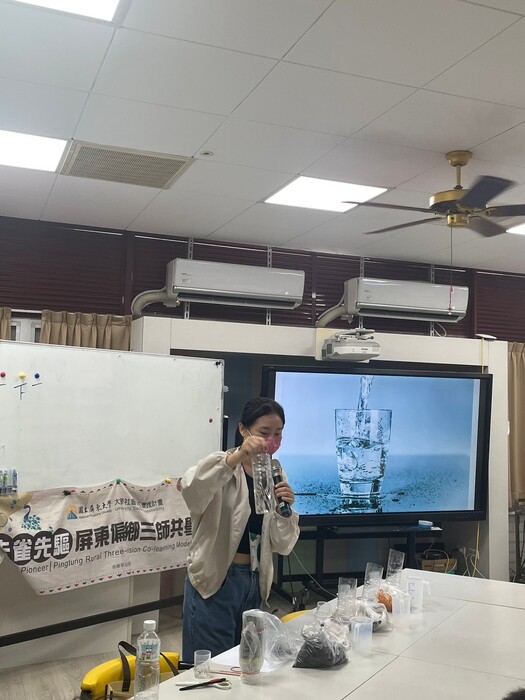
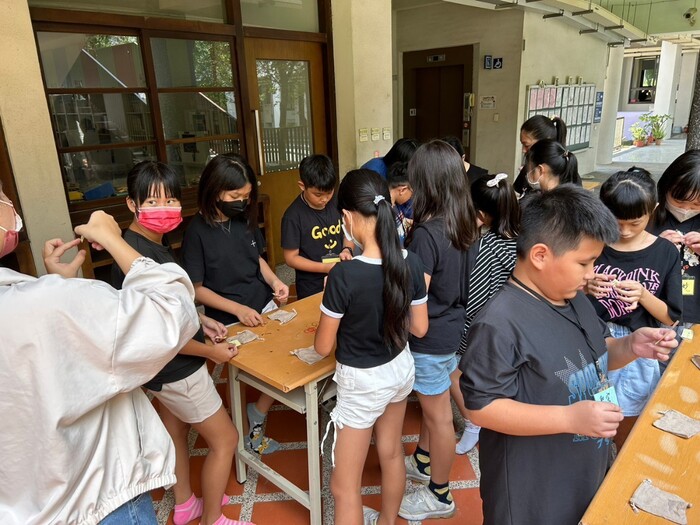
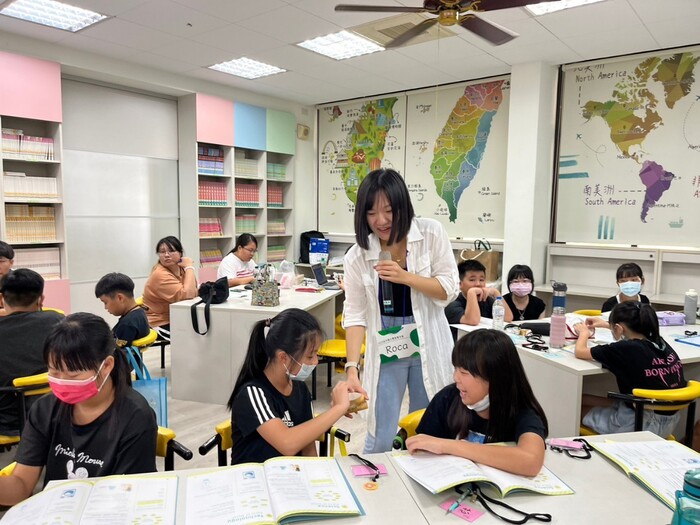

.png)
